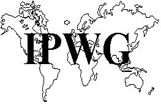

 |
 |
|
Abstract
Misa DjurkovicEthnic Radicalization at KosovoMarch of 1999. brought a war in which NATO attacked a sovereign country without permission of Security Council of United Nations. This action was displayed from NATO officials as a humanitarian intervention which NATO, as a "protector of security² in Euro-Atlantic region, "unwillingly² had to undertake with the alleged purpose of protecting human rights of "peaceful² Kosovo Albanians, greatly endangered by the regime of Slobodan Milosevic. The whole problem was presented to the ordinary citizens of Euro-Atlantic community as a simple, clear, immediate issue, absolutely cut off of its long historical roots, the knowledge of which is however necessary for understanding the real complexity of the problem. It was even presented without its nearer causes, settled in the decade which preceded the war. All that was given to publicity was one-sided picture of permanent Serbian oppression on unprotected Albanian minority. That was a wonderful way above all to avoid problematic questions like: Why has American administration supported Milosevic¹s staying in power in Serbia , why they didn¹t use its influence on moderate Albanian politicians and on Milosevic to start real negotiations, who has established and supported UCK, and many others. The presentation focused on that decade. The thesis exhibited and defended in it was that all three factors involved in conflict (Milosevic, Albanian leaders and NATO/American officials) didn¹t want peaceful solution, but needed ethnic radicalization and increasing of tensions for their own purposes. Such a development necessary led to war. For the full text please contact the author ! |
||
 |
This
Site is provided by the
International Politics Working Group of the Association des Etats Generaux des Etutdiants de l'Europe |
||||